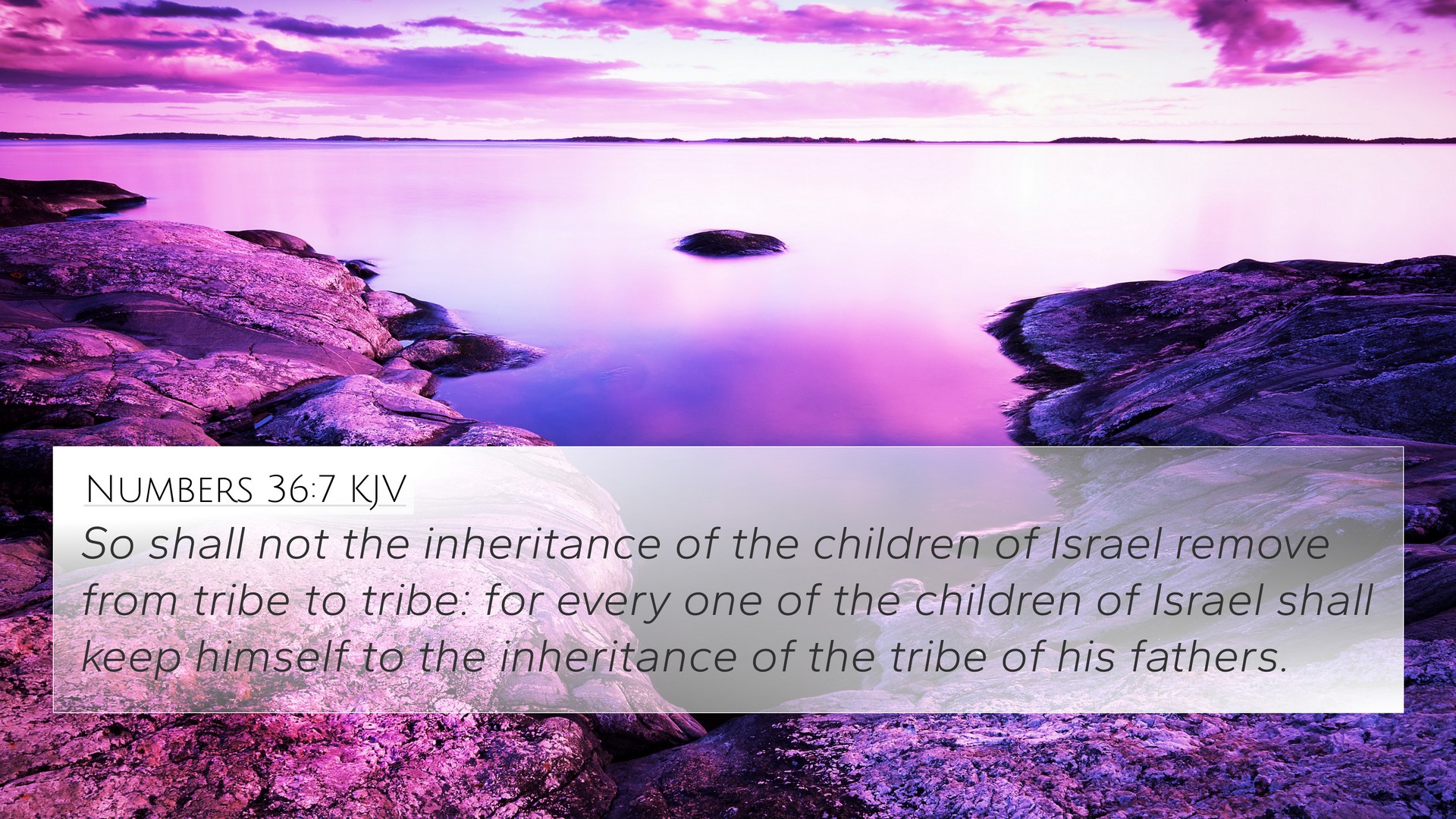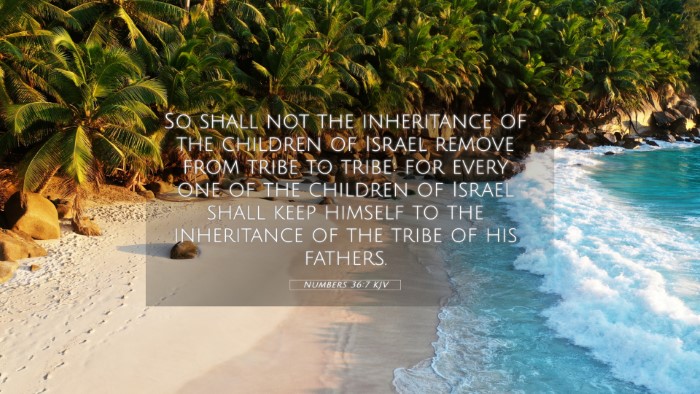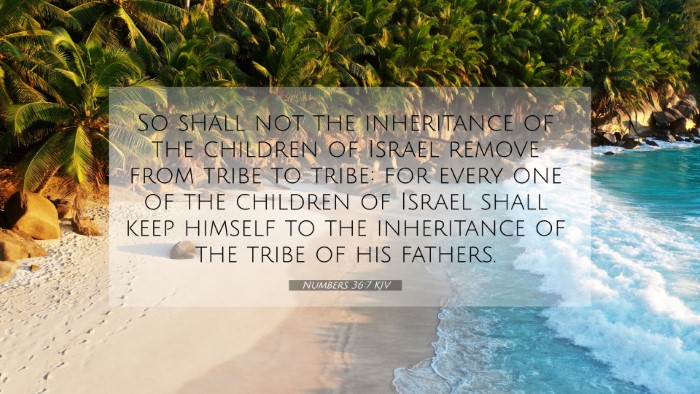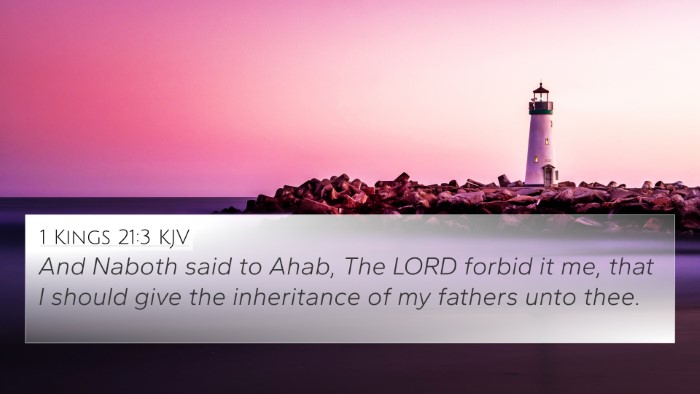Understanding Numbers 36:7
Verse: Numbers 36:7 states, "So shall not the inheritance of the children of Israel remove from tribe to tribe; for every one of the children of Israel shall keep himself to the inheritance of the tribe of his fathers."
Meaning and Interpretation
This verse from the Book of Numbers emphasizes God's directive regarding the inheritance of land among the tribes of Israel. The primary focus is to ensure that the inheritance remains within the tribe to which it was originally assigned, thereby preserving the distinct tribal identities and loyalties.
Insights from Commentaries
Matthew Henry's Commentary: Henry suggests that this command is vital for maintaining the integrity and identity of each tribe. He argues that God intended to prevent assimilation among tribes, which could dilute their unique heritage. The inheritance symbolizes not only property but also the blessings and promises of God tied to each tribe.
Albert Barnes' Notes: Barnes explains that this regulation was established to protect the rights of the tribal families. He remarks on how inheritance laws were established as a means to guarantee equity and justice, ensuring that each family retains its rightful place within the nation of Israel.
Adam Clarke's Commentary: Clarke points out that this law served to strengthen familial ties and tribal affiliation. He notes that the concept of land as an inheritance is deeply rooted in the covenant promises that God made with the patriarchs, reaffirming that territorial integrity was as important as spiritual integrity.
Theological Implications
This verse serves as a reflection of God's steadfastness in His covenant with Israel. By enforcing the inheritance laws, God is not only ensuring a fair distribution of the land but also highlighting the importance of loyalty to one’s heritage and the continuity of His promises.
Cross-References
- Numbers 18:24: This verse relates to the priestly inheritance, emphasizing the unique roles of the Levites in Israel.
- Deuteronomy 10:9: This verse indicates the Levites' special standing and their inheritance, which differs from the other tribes.
- Joshua 14:4: Joshua emphasizes the division of land among the tribes, adhering to the laws given in Numbers.
- Psalm 78:68-69: Here, a reminder of God choosing the tribe of Judah and establishing Zion is present, linking the themes of inheritance and divine selection.
- Micah 2:5: The concept of inheritance is used as a metaphor for losing one's heritage, warning against the consequences of injustice.
- Hebrews 7:14: This verse discusses Christ arising from Judah, linking the idea of inheritance not only in land but in spiritual lineage.
- 1 Peter 1:4: Discusses a spiritual inheritance that remains imperishable, connecting to the hope that transcends earthly inheritances.
Connecting Themes
This verse initiates a broader dialogue about inheritance throughout the Bible, particularly concerning the relationship between physical land and spiritual blessings. The protective laws established in Numbers resonate in various ways across both the Old and New Testaments, with implications for understanding God's purpose for His people.
Conclusion
Numbers 36:7 serves not only as a specific legal instruction but also as a reminder of the larger spiritual truths regarding God's promises to His people. By examining this verse in conjunction with related scriptures, one can appreciate the depth and interconnectedness of biblical themes regarding inheritance, identity, and divine purpose.




